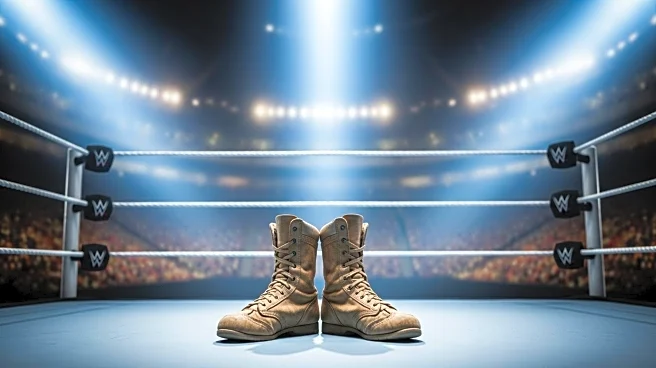What's Happening?
Bryan Danielson, a prominent figure in the wrestling world, has expressed openness to returning to the ring under specific conditions. In a recent interview, Danielson emphasized that any future wrestling endeavors must prioritize his health and family commitments. He highlighted the importance of being able to engage with his children and coach his son's tee-ball team, indicating a shift in priorities since his last active year in AEW. Danielson's previous wrestling activities included a retirement tour where he won the AEW World Championship and defended it successfully until losing to Jon Moxley. Currently, Danielson is focused on his role as a commentator for AEW, contributing his expertise to the broadcast team.
Why It's Important?
Danielson's potential return to wrestling is significant for fans and the wrestling industry, as he is a former AEW and WWE world champion. His decision to prioritize health over wrestling reflects broader concerns within the industry about athlete welfare and long-term health impacts. This shift could influence other wrestlers to consider similar approaches, potentially leading to changes in how wrestling careers are managed. Danielson's commentary role also adds value to AEW's broadcasts, enhancing the viewer experience with his insights and expertise.
What's Next?
If Danielson decides to return to wrestling, it will likely be under conditions that ensure his health and family commitments are not compromised. This could lead to a more selective approach to matches and appearances. Fans and industry stakeholders will be watching closely for any announcements regarding his return, which could impact AEW's programming and fan engagement. Additionally, Danielson's influence might encourage other wrestlers to adopt similar health-conscious approaches.
Beyond the Headlines
Danielson's situation highlights the evolving nature of professional wrestling, where long-term health and personal life balance are becoming increasingly important. This shift may prompt discussions about the sustainability of wrestling careers and the need for industry-wide changes to support athlete well-being. As more wrestlers prioritize health, the industry might see a transformation in how careers are structured and managed.









